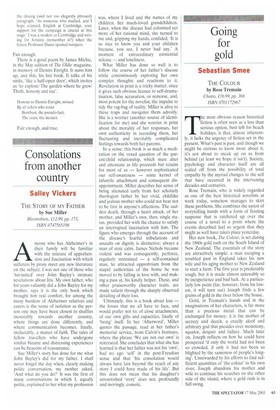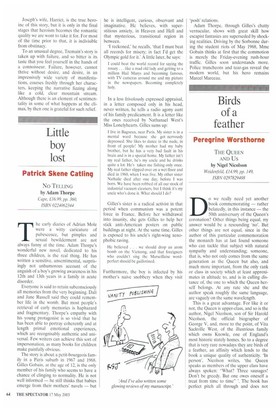Going for gold
Sebastian Smee
THE COLOUR by Rose Tremain Chatto, £16.99, pp. 368 ISBN 0701172967 The most obvious reason historical fiction is often seen as a less than serious option, best left for beach holidays, is that, almost inherently, it lacks the urgency of fiction set in the present. What's past is past, and though we might be curious to know more about it, it's not about to sneak up on us from behind (at least we hope it isn't). Society, psychology and character itself are all sealed off from the possibility of total empathy by the myriad changes to the self that have occurred in the intervening decades and centuries.
Rose Tremain, who is widely regarded as one of the best historical novelists at work today, somehow manages to skirt these problems. She combines the surest of storytelling hands with a form of floating suspense that is ratcheted up over the course of a novel to a point where the events described feel so urgent that they might as well have taken place yesterday.
Her new book, The Colour, is set during the 1860s gold rush on the South Island of New Zealand. The essentials of the story are attractively simple: a man escaping a troubled past in England takes his new wife and his aging mother to New Zealand to start a farm, The first year is predictably tough, but it is made almost untenably so by inexperience and bad luck. At a particularly low point (far, however, from his lowest, it will turn out) Joseph finds a few grains of gold in the river below the house.
Gold, in Tremain's hands and in the imaginations of her characters, is far more than a precious metal that can be exchanged for money; it is the mother of secrecy and deceit, a cruelly aloof and arbitrary god that presides over monotony, squalor, despair and failure. Much later on, Joseph reflects on how he could have prospered 'if only the world had not been so crowded, if only it had not been so blighted by the sameness of people's longing'. Unrewarded by his efforts to find sufficient quantities of 'the colour' in his own river, Joseph abandons his mother and wife to continue his searches on the other side of the island, where a gold rush is in full swing. Joseph's wife, Harriet, is the true heroine of this story, but it is only in the final stages that heroism becomes the romantic quality we are wont to take it for. For most of the time prior to that, it is indivisible from obstinacy.
To an unusual degree, Tremain's story is taken up with failure, and so bitter is its taste that you feel yourself in the hands of a connoisseur. Failure, however, cannot thrive without desire, and desire, in an impressively wide variety of manifestations, courses freshly through her characters, keeping the narrative fizzing along like a cold, clear mountain stream. Although there is an element of sentimentality in some of what happens at the climax, by then one is grateful for such relief.



































































































 Previous page
Previous page